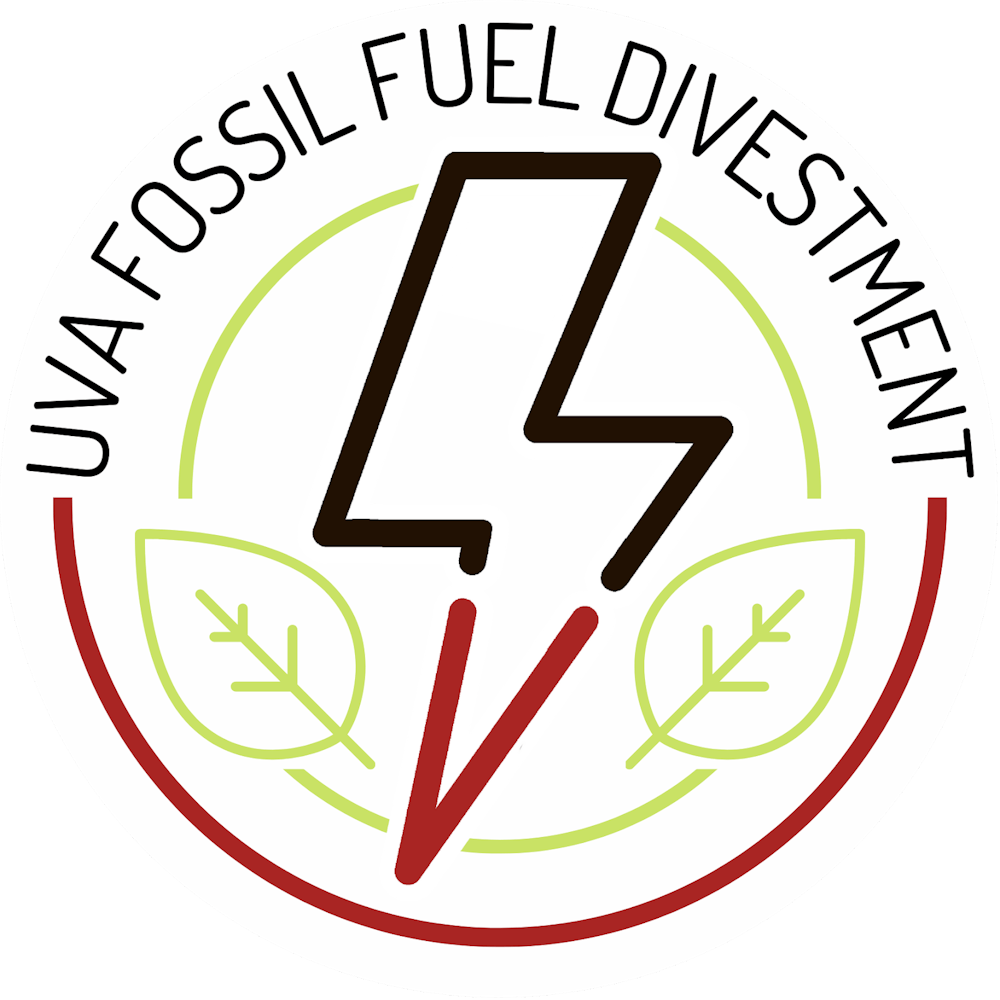In a recent op-ed published in The Cavalier Daily, Asst. Commerce Prof. Robert Parham critiques the efficacy of fossil fuel divestment. While Parham raises thought-provoking arguments, DivestUVA contends that his case against divestment is ultimately flawed.
DivestUVA has called for the University of Virginia Investment Management Company to divest the University’s $14.5 billion dollar endowment from fossil fuels. Parham claims that if UVIMCO divested, other investors with lower moral standards would buy up UVIMCO’s previously held shares. He argues that this would result in more “bad people” investing in fossil fuel companies, allowing these companies to continue as normal or pursue even more damaging trajectories. Theoretically, the University — as a stakeholder in fossil fuel companies — can nudge them toward environmentally friendly practices. However, there is no evidence suggesting that the University is using its stakeholder status to change fossil fuel companies from the inside. Moreover, it is misguided to think that the University — with an investment profile likely dispersed across various fossil fuel corporations — possesses the necessary voting shares in individual companies to have a significant influence. More importantly, the University lacks the long-term political will to engage in successful shareholder activism.
Furthermore, the actions of publicly traded companies are motivated by distinct underlying philosophies. Even if shareholders or leadership have positive intentions, corporations’ ultimate goal — to maximize profit — wins over. Exxon Mobil is a prime example of this phenomenon. Despite the appointment of new directors who pledged to urge the company toward cleaner energy, Exxon recently created plans to increase oil production by 25 percent in 2022 in the largest U.S. oil basin. Through investment, including by UVIMCO, companies like Exxon Mobil are enabled to continue the catastrophic process of fossil fuel extraction.
Some suggest that fossil fuel companies are the only actors capable of altering the trajectory of the climate crisis, given their tremendous wealth and power. Especially in recent years, some of these multi-billion dollar corporations have created goals such as lowering carbon and pledging to be net-zero. However, these sustainability plans are riddled with greenwashing — the process of industries misleading the public into believing their actions or company products are more sustainable than they actually are. Despite public displays of climate consciousness, fossil fuel industries continue to spread climate disinformation and privately block climate action policies. Given the history of dishonesty and exploitation associated with this industry, the notion that well-meaning investors could inspire a change of heart in fossil fuel corporations is nothing short of absurd.
DivestUVA agrees with Parham’s argument that our divestment alone would not be enough to disempower fossil fuel companies. However, it would be a mistake to ignore the impact of our proposed actions. Across 33 nations, divestment pledges are associated with decreased debt and equity capital flows to fossil fuel firms. Historically, the University has participated in divestment as an effective form of protest — in 1986, it divested $400,000, currently equivalent to over $1 million, from companies associated with the South African apartheid regime. More recently, in 2006, UVIMCO divested the University’s endowment from companies operating in Sudan in response to the ongoing genocide in Darfur. The University prides itself as a global thought leader, so it is crucial that we embrace the power of divestment as dissent — and in doing so, inspire others to follow in our footsteps. The impact of a single institution’s divestment might be hard to observe, but successful protest hinges on collective action.
Parham suggests that the University immediately purchase carbon offsets to become carbon neutral. Carbon offsets are a popular alternative to actually reducing carbon emissions within an institution — offsets are purchased so that someone else can compensate for the amount of carbon dioxide emissions that we have created. Thus, carbon offsets can easily become a way for wealthy institutions and individuals to pay their way out of taking responsibility and necessary action to actually reduce their emissions. Even at their peak, offsets stagnate our common goal of climate resilience. Offsets promote institutional irresponsibility as the biggest polluters are able to continue to burn fossil fuels while boasting about net zero emissions — which are neither tangible nor easily demonstrated. In fact, a study by the European Union Commission found that 85 percent of carbon emission reduction projects in the EU’s United Nations Clean Development Mechanism did not actually reduce carbon emissions. Buying carbon offsets also raises ethical concerns. Should it really be up to other — often more economically disadvantaged people or institutions — to reduce their emissions so we do not have to change our own?
Investment in fossil fuels discredits the University’s sustainability initiative and undermines its commitments to a green future. With the creation of the 2020-30 Sustainability Plan, the University has taken its first steps towards eliminating its carbon footprint. However, continued investment in fossil fuel companies is antithetical to our goal of being fossil-fuel-free by 2050. Critics like Parham overlook the fact that divestment entails both ethical and financial dimensions. As Nobel Prize-winning economist and Columbia professor Joseph Stiglitz notes, divestment is a prudent financial decision for investors seeking long-term stability, an operational attack on fossil fuel industries by reducing capital inflows at scale and a visible statement that “‘I don't want to be part of destroying the future of our world.’” There is no neutral position in this situation. If the University wants to spur positive change, it must divest its endowment from a backward industry that is actively destroying the environment.
In solidarity with past, present and future students,
DivestUVA
Divest UVA is a student-led coalition urging that the University extend its environmental commitments beyond operational sustainability to the University endowment.







